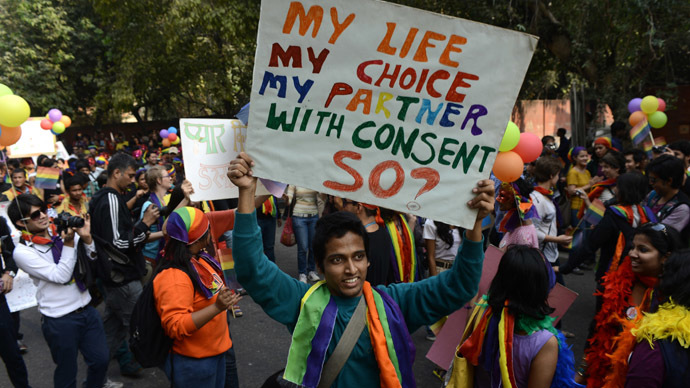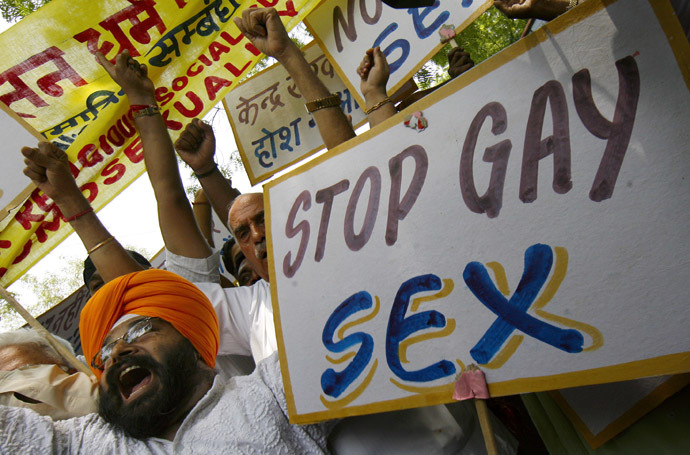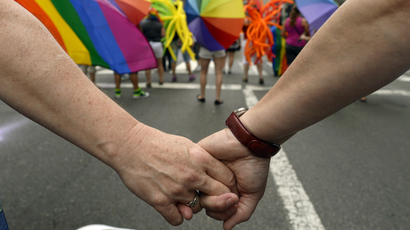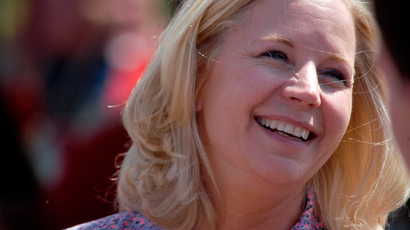India Supreme Court upholds colonial ban on gay sex

The Indian Supreme Court has struck down a 2009 ruling by a lower court to decriminalize homosexual sex and will uphold the ban. India’s gay community was “disappointed” by the ruling and declared it was a “black day” for LGBT rights.
In Wednesday’s hearing the Supreme Court said that the Delhi High
Court overreached its authority by ruling against the ban in
2009. The Delhi High Court moved to abolish Section 377 of the
Indian Penal Code, which classifies anal sex as “carnal
intercourse against the order of nature,” in 2009.
"It is for the legislature to look into desirability of
deleting Section 377 of the Indian Penal Code," the Supreme
Court said on Wednesday.
Section 377 was introduced into the Indian legal system during
British colonial rule in 1861.
Those found breaking the law banning homosexual intercourse can
be punished by a fine and a maximum jail sentence of 10 years.
Before making the decision, justices G S Singhvi and S J
Mukhopadhaya heard the appeals of representatives of various LGBT
organizations as well as those of religious groups who decried
the previous High Court ruling as against the cultural and
religious values of the country.
LGBT activists who were in attendance at the hearing visibly
broke down when the ruling was pronounced and said the verdict
had “taken away their right to life,” reported the India Times.
"Such a decision was totally unexpected from the top court. It is
a black day," Arvind Narrain, a lawyer for the Alternative
Law Forum gay rights group, told reporters.
“In our understanding, the Supreme Court has always sided
with those who have no rights,” said Narrain.
In addition, Amnesty International India made a plea to the
Indian parliament to take immediate steps to decriminalize
consensual sex between adults of the same sex. LGBT activists
have pledged to appeal the Supreme Court’s ruling. However it is
unlikely the government will approve decriminalization ahead of
general elections in May for fear of losing conservative voters.
The Supreme Court decision takes India back several years in its commitment to protect basic freedoms.
— Amnesty India (@AIIndia) December 11, 2013

Religious groups, however, have hailed the ruling as in keeping
with India’s cultural and religious heritage.
"All the major communities of the country - the Hindus, the
Christians and the Muslims - had appealed against the ruling of
the Delhi High Court," a lawyer for a Muslim charity told
reporters. "They had said that this unnatural sex is not
permissible in all the religions of the world."
One of the main arguments by LGBT supporters against the
criminalization of gay sex was that the initial ban was a product
of British colonialism and Indian society was more tolerant
towards homosexuality.
Attorney General G E Vahanwati argued that the law was introduced
into the Indian Penal Code under the influence of “Victorian
morality and values.”
“It would appear that the introduction of Section 377 in
India was not a reflection of existing Indian values and
traditions. Rather, it was imposed upon Indian society due to the
moral views of the colonizers,” the attorney said in a 2012
hearing.













